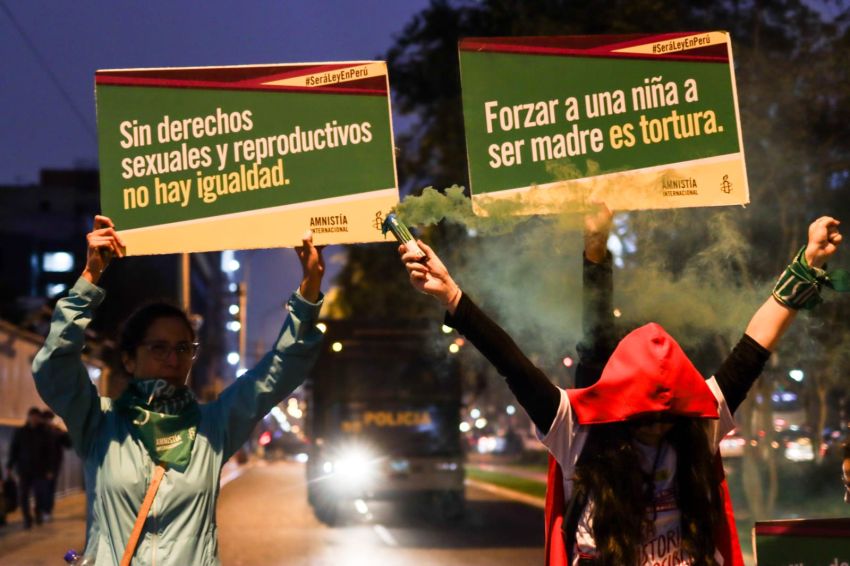
Thousands rallied across Peru for International Safe Abortion Day on September 28, demanding the right to safe, accessible abortions. Hundreds marched through the capital, Lima, under the banner of “The Right to Decide”.
Abortion is illegal in Peru, even in cases of rape. While abortion is technically allowed in cases where the pregnant person’s health or life is at risk, in practice it is difficult to access a safe abortion.
The penalties for getting an abortion can be up to five years in prison, with up to four years for anyone who performs, or assists in, an abortion.
By law, doctors are required to report women seeking an abortion to the police, where they often face harassment and fines.
While Peru’s punitive laws stigmatise and deny the right to an abortion, they haven’t prevented the numbers of people in need from getting them. A 2018 study by the Centre for the Promotion and Defence of Sexual and Reproductive Rights found that one in five women aged 18–49 have had at least one abortion.
The laws force pregnant people to undergo abortions in clandestine, unsafe conditions, which poses serious health risks. Unsafe abortion is the fourth-leading cause of maternal death, with 50–70 people dying from abortion complications each year.
The lack of access to abortion amplifies Peru’s crisis of rape of underage people leading to pregnancies. Women’s Emergency Centres attended to 7614 cases of rape against girls and adolescents in 2022, while the health ministry recorded 1624 births to mothers younger than 15 years old.
Access to abortion is further complicated in rural and remote areas, where healthcare is generally poorer and people have to travel long distances to access medical services. For Indigenous communities, health information is usually only provided in Spanish, not their mother tongue.
Indigenous communities also face the intergenerational trauma associated with health institutions, with one harrowing example being a government program that forcibly sterilised nearly 300,000 Indigenous women between 1995–2001.
Access to abortion is a class issue, with poorer communities less able to seek out and pay for abortions.
Elga Prado, organiser in the feminist organisation Movimiento Manuela Ramos, told OpenDemocracy that: “Women with resources can access places where their lives are not at risk, but women, girls and adolescents without money are forced to risk their lives in clandestine spaces.”
One of the main obstacles to attaining abortion rights is Congress and the executive branch of government, which are controlled by conservative religious fundamentalists who believe an abortion is a “sin against God”. Despite an Ipsos poll last year finding that 65% support the legalisation of abortion in the case of rape, ultraconservatives continue passing laws restricting abortion rights.
Congress passed a law in November last year codifying the “rights of the conceived”, granting embryos and foetuses the right to “life”, “identity” and “free development” from conception, further denying the rights of those seeking an abortion.